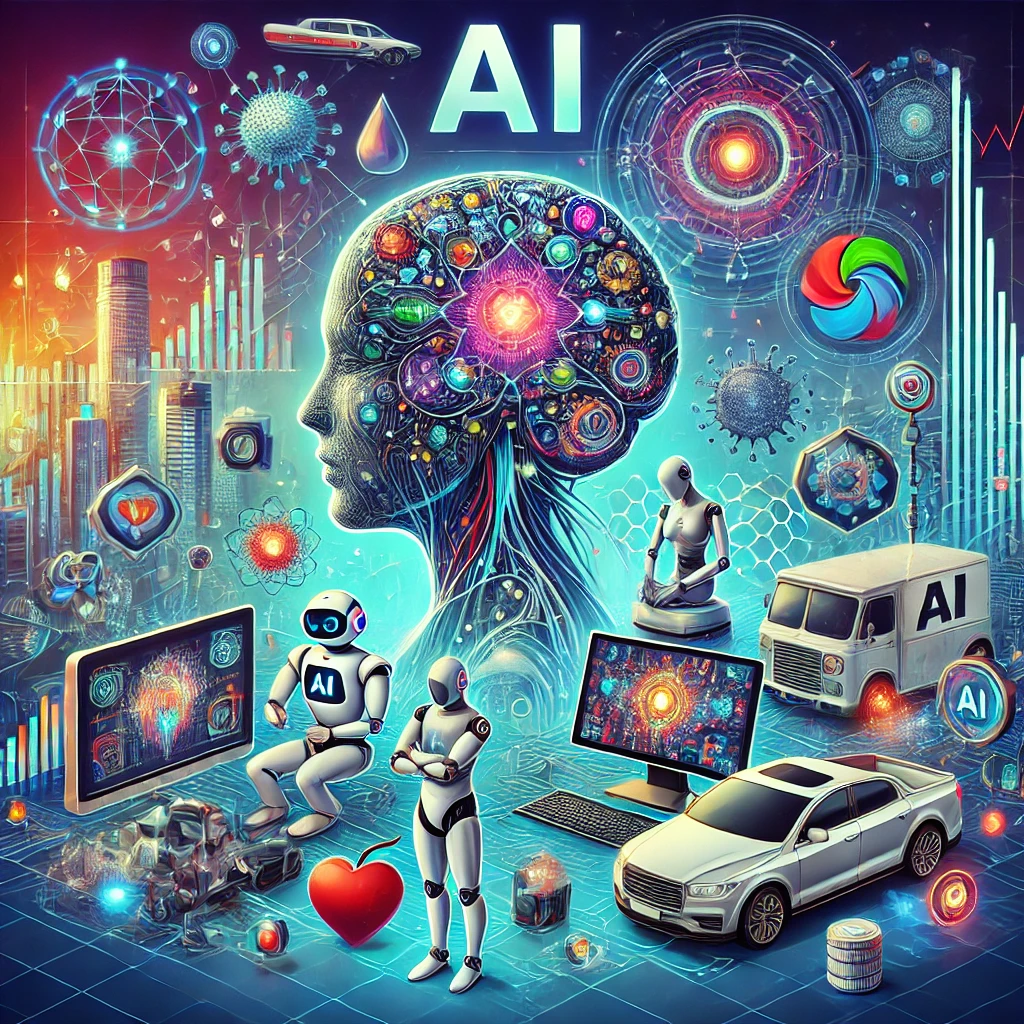In recent years, Artificial Intelligence, or AI, has moved from the realm of science fiction to being an integral part of our everyday lives. From virtual assistants like Siri and Alexa to self-driving cars, AI is reshaping industries and redefining what machines can do. But what exactly is AI, and how does it works?
Defining AI
At its core, Artificial Intelligence refers to the development of computer systems that can perform tasks typically requiring human intelligence. These tasks include recognizing speech, learning from experience, understanding language, solving problems, and even mimicking human creativity. Unlike traditional software that follows a set of instructions, AI systems are designed to learn and adapt through experience, making them more flexible and capable of tackling complex problems.
Types of AI: AI can be broadly classified into three types:
- Artificial Narrow Intelligence (ANI): This is the most common form of AI we encounter today. ANI is designed to perform a specific task, such as facial recognition, language translation, or driving a car. While it can be incredibly powerful within its domain, it cannot perform tasks outside of its programmed range.
- Artificial General Intelligence (AGI): Often referred to as “strong AI,” AGI represents a system with general cognitive abilities, capable of understanding, learning, and applying knowledge across a wide range of tasks, much like a human. While we are far from achieving AGI, research in this field is ongoing.
- Artificial Superintelligence (ASI): ASI refers to an AI system that surpasses human intelligence in all aspects. It’s a concept that belongs more to the future and is the subject of both excitement and concern among researchers and ethicists.
How Does AI Work? AI operates through a combination of technologies like machine learning, neural networks, and deep learning.
- Machine Learning (ML): ML is a subset of AI that allows computers to learn from data without being explicitly programmed. By feeding a machine vast amounts of data, it can identify patterns, make decisions, and improve its performance over time.
- Neural Networks: Inspired by the human brain, neural networks consist of layers of nodes (neurons) that work together to process data. These networks are crucial for tasks like image recognition and natural language processing.
- Deep Learning: A more advanced form of machine learning, deep learning involves neural networks with many layers, allowing machines to perform tasks like understanding speech or identifying objects in images with impressive accuracy.
Applications of AI:
AI’s applications are vast and span almost every industry:
- Healthcare: AI is revolutionizing diagnostics, personalized treatment plans, and even drug discovery. Machine learning models can analyze medical images, predict diseases, and assist in surgery.
- Finance: In banking and finance, AI helps with fraud detection, algorithmic trading, and personalized customer experiences, making financial services more efficient and secure.
- Manufacturing: AI-powered robots and machines are optimizing production lines, reducing costs, and improving quality control in manufacturing industries.
- Customer Service: Virtual assistants and chatbots are becoming a norm in customer service, helping businesses engage with customers more effectively and at scale.
- Autonomous Vehicles: Self-driving cars, powered by AI, are poised to transform transportation, reducing accidents and improving traffic flow.
Challenges and Ethical Considerations
Despite AI’s incredible potential, it also poses significant challenges. Concerns about job displacement, data privacy, algorithmic bias, and the potential misuse of AI for harmful purposes are hot topics in the tech community. Ensuring that AI is developed and used ethically is a crucial task for governments, businesses, and society as a whole.
The Future of AI
AI is still in its infancy, and its future holds immense promise. From transforming industries to tackling global challenges like climate change, AI has the potential to drive innovation in ways we are only beginning to understand. As we continue to unlock its potential, the question is not just what AI will do next but how we, as a society, will shape its evolution.
Conclusion
Artificial Intelligence is not just a technological advancement; it is a paradigm shift in how we interact with the world. As AI continues to evolve, understanding its foundations, capabilities, and limitations will be key to harnessing its power responsibly. Whether you’re excited or cautious about the future of AI, one thing is certain—it’s here to stay.
